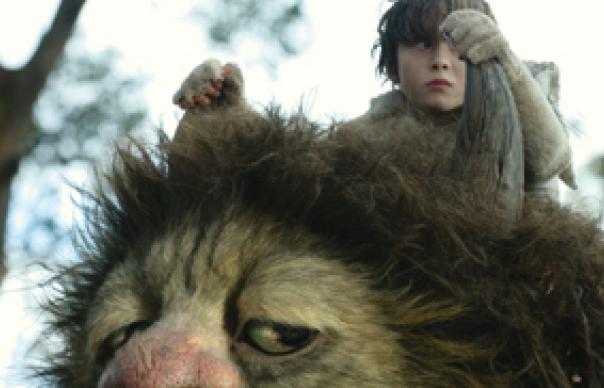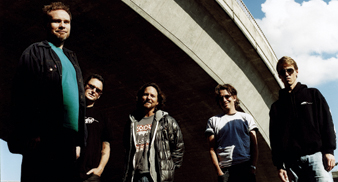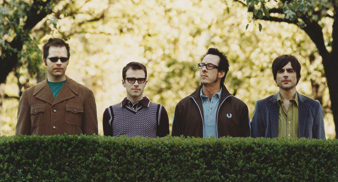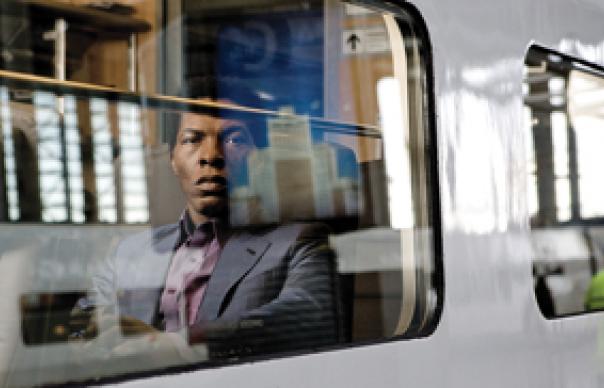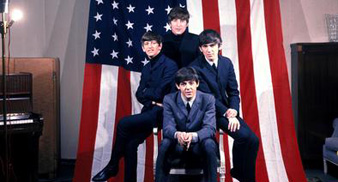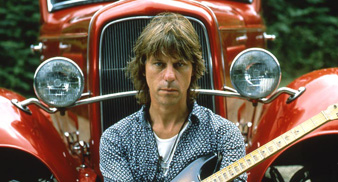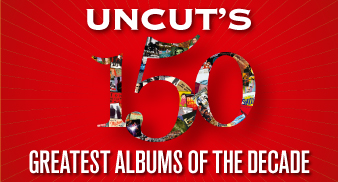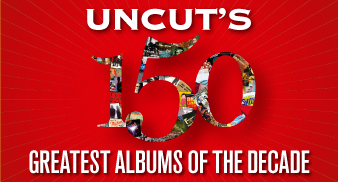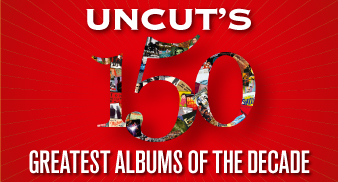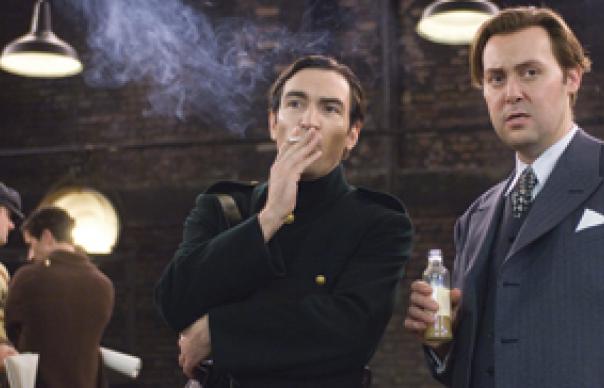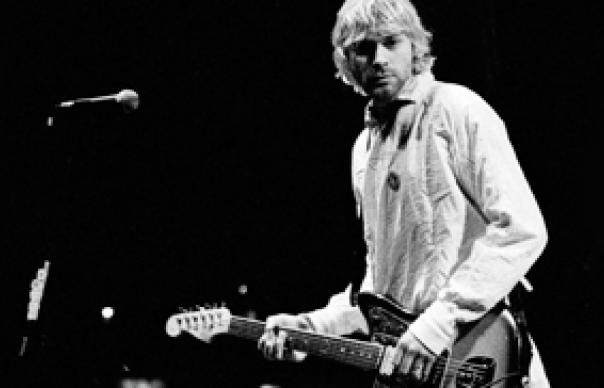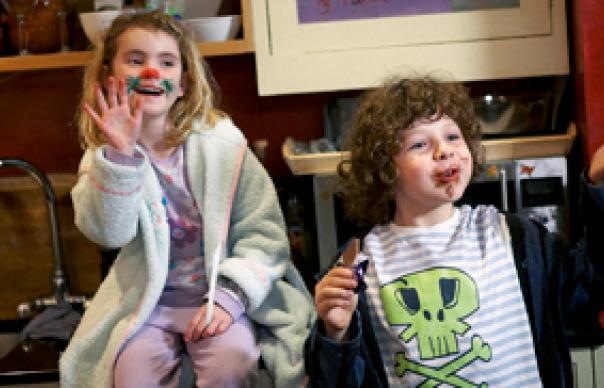UNCUT’S 150 GREATEST ALBUMS OF THE DECADE
To commemorate these two moderately historic events, we’ve spent some time rifling through our record collections and back issues, thinking about the music that has made the most impact on our magazine. The result is this: Uncut’s 150 Greatest Albums Of The Decade.
Over the past 10 years, the musical landscape – and especially the ways in which we receive and listen to music – have been transformed at a pace few of us could have predicted. The musical cultures Uncut treasures, however, have continued to flourish. Indeed, some of our more obscure favourites, like Brightblack Morning Light or Lift To Experience, are now as available as a Dylan album; just a click away. To that end, Uncut’s 150 is unashamedly a specialist’s list, since it’s easier than ever before to become a specialist. There are no concessions to eclecticism or commerce, just 150 LPs that have defined the tastes of Uncut’s staff and, we hope, those of our readers. Fifteen of them appear on this month’s free CD. Here they come, followed by an interview with the man who bestrides the 150 – and the decade – like a candycane-striped colossus…
***
150
BAND OF HORSES
Everything All The Time SUB POP 2006
Written in Seattle, and betraying an obvious nostalgia for chief songwriter Ben Bridwell’s native North Carolina, Band Of Horses’ strident debut offered a simplified, but no less effective, take on My Morning Jacket’s concept of cosmic Americana. The unpretentious subject matter – nature, friendship, smoking weed – was delivered with an infectious, warm-hearted optimism via Bridwell’s stunning reverb-drenched vocals.
149
RAY LAMONTAGNE
Trouble 14TH FLOOR 2006
An austere and moving album produced with analogue purism by Ethan Johns (Ryan Adams, Kings Of Leon), Trouble introduced a soulful introvert from the remote Maine woods, which accounted for its rustic, timeless sound. Playing most of the instruments, Johns surrounded LaMontagne in a fogbank of mood, out of which burst a voice striking in its primal emotionality. On songs like “Shelter”, “Trouble” and “Narrow Escape”, LaMontagne brought the legacy of troubadours into the 21st Century.
148
FRANZ FERDINAND
Franz Ferdinand
DOMINO 2004
Just as Modern Life Is Rubbish had positioned Blur as the saviours of British pop from the grunge invasion 10 years previously, so this debut appeared as a riposte to the all-conquering Strokes and White Stripes. Certainly, closer inspection of the quartet’s songs exposed what might be called their Britpop 2.0 strategy: an update of Pulp’s archness and Suede’s androgyny, compounded by references to “BBC2” and “Terry Wogan”.
147
The Acorn
Glory Hope Mountain
bella UNION 2008
The UK debut of Ottowa’s The
Acorn was an extraordinary musical biography of bandleader Rolf Klausener’s Honduran-born mother, Gloria Esperanza Montoya (the album’s title is a rough English translation of her name), whose elliptical narrative followed her escape from Caribbean oppression to a new life in Canada. Like Canadian contemporaries Arcade Fire, Port O’Brien and Besnard Lakes, The Acorn were musically both conversational and anthemic, moving effortlessly from
rough-and-tumble rusticity to epic expansiveness in the same song.
146
RICHARD THOMPSON
Front Parlour Ballads COOKING VINYL 2005
Amid his ongoing 1000 Years Of Popular Music project and the odd Fairport Convention reunion, Richard Thompson’s doughty solo career continued with the usual discreet flair and unflinching craftsmanship. Facing stiff competition from 2007’s Sweet Warrior, Front Parlour Ballads was his decade highpoint; recorded at home, mostly solo and on acoustic guitar. The characteristically sombre tone couldn’t hide Thompson’s wry humour, nor the acknowledged absurdity of making observations
on a lost and changing England from his garage in LA.
145
IRON & WINE
Our Endless Numbered Days SUB POP 2004
Sam Beam’s second took him out of his bedroom and into the studio, but Brian Deck’s understated production kept the whispery intimacy of his debut, Creek Drank The Cradle. Beam’s approach favoured understatement, but the addition of extra musicians was sensitively achieved, whether on the harmonies of the beautifully bleak “Naked As We Came” (by Beam’s sister, Sara) or the pedal steel on “Sunset Soon Forgotten”. As ever, the softness of Beam’s singing masked some bleak poetry.
144
ROBERT WYATT
Comicopera DOMINO 2007
Wyatt’s reputation as one of the UK’s most radical
artists was again confirmed with Comicopera. At times, yes, this album had its jovial moments. But they were the wry notes of a smart, puzzled man looking about him and seeing homogenised town centres and bureaucracy as a symptom of a richer and more disturbing movement in society. It was wise but never preachy, both familiar and alien. Tell us another, Robert.
143
LEONARD COHEN
Ten New Songs COLUMBIA 2001
Cohen’s return to live work provided some of the most poignant – and unexpectedly massive – concerts of the decade. His recorded come-back, however, was a stealthier affair, producing two quietly excellent LPs. Narrowly outclassing 2004’s curious Dear Heather, Ten New Songs once again placed Cohen’s lugubrious croon into Sharon Robinson’s genteel soundscapes. Undervalued at the time, it has matured, fittingly, like fine wine: “In My Secret Life”, “A Thousand Kisses Deep” and “Boogie Street”, in particular, now sound like quintessential Cohen standards.
142
Yeah Yeah Yeahs
Fever To Tell
POLYDOR 2003
The arrival of the Yeah Yeah Yeahs’ debut showed there was considerably more to the New York renaissance than just The Strokes. While their peers were delivering a preppy take on ’70s New York New Wave, Yeah Yeah Yeah’s were concerned with heavier, sweatier matters, closer, perhaps, to Zep-style riffing. Much of this could be put down to Nick Zinner’s ferocious guitars, but it was singer Karen O’s combative, sexually charged persona that gave them a wicked sass all of their own.
141
RACHEL UNTHANK
& THE WINTERSET
The Bairns EMI 2007
While the American underground seemed to produce a new rethink of folk traditions, the British folk scene was generally more conservative. Rachel and Becky Unthank, however, were a glorious exception, mixing up traditional songs that referenced their north-eastern roots with covers of Will Oldham and Robert Wyatt, and a melancholic neo-classical air. Credit, too, to then-pianist Belinda O’Hooley (a former winner of Stars In Their Eyes, as Annie Lennox), who provided two outstanding new songs,”Blackbird” and “Whitethorn”.
140
ESPERS
Espers II DRAG CITY 2006
For their second LP, Philly psych-folk practitioners Greg Weeks and Meg Baird continued their explorations on folk’s dark side, deftly stitching Velvet Underground guitars to cloistered melodies and stately medieval chord progressions. The seven stoner madrigals on offer here were so compelling, and so distinctive, that even when an interpreter as skilled as Marianne Faithfull covered the eldritch “Children Of Stone”, you had to search out the original.
139
OUTKAST
Speakerboxxx/
The Love Below Arista 2003
Less a double album than two superb solo projects packaged together under the OutKast brand. Speakerboxxx was the vehicle for Antwon “Big Boi” Patton’s inventive Southern hip hop, while on The Love Below, Andr‚ 3000 seized the chance to showcase his flamboyant, restless creativity, taking in piano jazz, retro-soul, horny monologues, funk and more. Each disc contained mainstream gold: for Big Boi, the party grooves of “The Way You Move”, for Andr‚, the irresistible neo-Motown “Hey Ya”.
138
WILCO
Sky Blue Sky
NONESUCH 2007
The sixth Wilco LP was a perverse beast. Having finally recruited his ideal lineup, with avant-garde guitar hero Nels Cline embedded in the ranks, a newly contented Jeff Tweedy led them into Laurel Canyon territory that initially sounded like the mellowest and most conventional Wilco music in years. Along with the balmy vibes, however, there remained a capricious way with a melody, and some great, needling solos from the masterful Cline.
137
ELLIOTT SMITH
From A Basement On The Hill DOMINO 2004
Pieced together from Smith’s extensive last sessions and released a year after his death, From A Basement On The Hill is not quite the sprawling, anti-commercial opus
the singer intended. A single album rather than the projected double, and with the tapes cleaned up by producer Rob Schnapf, the 15 songs still sounded fuzzier and angrier than Smith had in years. But the sweet clarity of his songwriting was as arresting as ever, and the familiar allusions to drugs and depression, now had an unbearable poignancy.
136
THE STROKES
Room On Fire
ROUGH TRADE 2003
Compared to the bang made by their debut, the second Strokes album couldn’t help but be received, relatively speaking, as a whimper. It was unfair then, and it doesn’t seem right now: opening with the wonderful “What Ever Happened”, the band deliver a set in part informed by the rush of their successes (say, “Meet Me In The Bathroom”), while at the same time remaining completely unfazed.
135
willard grant conspiracy
Regard The End Loose, 2003
Even by their own glum standards, Regard The End was a fabulously gloomy album of orchestral Americana. Every track was preoccupied, as the LP’s title unmistakeably insists, with a single subject: death. Astonishingly, what might have been a record of utter bleakness was somehow vividly uplifting, eventually life-affirming, Robert Fisher’s handsome baritone supported by a formidable array of strings and horns on a fine suite of sombre ballads and secular hymns.
134
RADIOHEAD
Hail To The Thief PARLOPHONE 2003
Uneasy listening for challenging times, as Thom Yorke and co launched an intimidating mix of old and new…
If there’s a word to summarise Radiohead’s output of the past 10 years, it would have to be “discomfort”. Some dispensed by the band to its listeners. Much of it, though, has been experienced by Radiohead themselves: an ill-ease
with their status as composers of epic guitar rock, with the state of the world, and finally even with the mechanical process of releasing records itself.
At least some of these concerns find a home under the roof of Hail To Thief. Neither the twitchy electronica of 2000’s Kid A, nor the warmer tones of the subsequent Amnesiac from 2001, it’s an album that acknowledges the system restart performed by those two albums, and moves forward, on a larger and rather more intimidating roadmap.
Ultimately, after a period of tactical withdrawal, Hail To The
Thief felt like a plan of attack, for which the times were certainly appropriate. The band’s first recorded work since the events of 9/11 and the commencement of the war on terror, it looked at a world of WMD, “hanging chads”, and the re-election of George Bush with a barely concealed fury. If something had gone seriously wrong in the world, it was reflected in the creepy nursery rhyme logic in the LP. From the opening “2+2=5” to the title track (“Go and tell the king/The sky is falling in…”), this was a place where everything was turned on its head. “There There”, arguably the band’s best song, was subtitled “The Bony King Of Nowhere” – the title of a Bagpuss episode.
Throughout the album, Radioheads ancient and modern sat alongside one another in nearly perfect harmony. Fans of the band’s guitar music were undeniably delighted by “2+2=5”, which began with the crunch of the lead guitarist plugging in (in the background you can hear Thom Yorke mutter, “That’s a nice way to start, Johnny.”) Elsewhere, electronic ambiences provided some markedly sinister moments.
It’s uneven, but Hail To The Thief is important. For the previous few years Radiohead had intimated that something very bad was going to happen. When it did, they didn’t say “I told you so” – they rose up to meet the challenge. Next up was Thom Yorke’s solo album, The Eraser, but with In Rainbows, came a new target: this time, the record industry.
133
BRUCE SPRINGSTEEN
We Shall Overcome:
The Seeger Sessions COLUMBIA 2006
A homage to a great, but The Boss’ rollicking big-band stew of Americana also reconfirmed him as a political artist
Springsteen has spent his career bouncing from wide-eyed, expansive rock’n’roll to smaller, darker records rooted in folk tradition. But as the millennium dawned, it seemed as if the tension between the extremes had worn him out. By 2002, he hadn’t released an album since 1995’s bleak, bare The Ghost Of Tom Joad. When he finally returned, reunited for the first time in 18 years with The E Street Band, it was for his 9/11 record, The Rising – as if Springsteen had looked around for the great American troubadour who would sing the song the country needed to hear at that moment, and then, with no one else stepping forward, realised it was up to him.
It looked however, as though the effort might have burned him out. 2005’s unadorned Devils And Dust represented a step backwards: the songs dated to the …Tom Joad period, and the performance was strangely muted. When news broke that his next record was a collection of songs made famous by American folk’s work-shirted patriarch Pete Seeger, there seemed reason to be apprehensive. Had Springsteen run out of songs of his own? Was some over-earnest Boss balladeering set to ensue?
Thankfully, We Shall Overcome was no exercise in self-righteousness. Rather, recorded with an 11-stong big band collective in his New Jersey farmhouse, general rollicking was the order of the day. Complete with Dixieland horns, front-porch banjo and hoedown fiddle, Springsteen recast these songs to go stomping spontaneously across bluegrass, gospel, New Orleans jazz and Texas swing. A yawping stew of Americana, delivered with a belt to rival The E Street Band in full flight.
While the mix of nursery rhymes, spirituals, ballads and reels avoided any “messaging”, however, its message was clear. In 2004 Springsteen had campaigned hard for Democratic Presidential Candidate John Kerry, and watched him lose hard. With no end in sight to the Bush era, here, with a set pointedly dedicated to a proud old leftist, he embraced his position as a political singer.
This wasn’t “protest music”, but songs like “Eyes On The Prize” and the title track gave voice to a growing American mass determined that change was going to come. Recharged, Springsteen sounded more urgently, wildly alive than he had in a decade. The momentum carried into his next adventures, not only with The E Street Band – Magic and Working On A Dream – but also out on the stump,
working for Barack Obama.
132
DRIVE-BY TRUCKERS
Brighter Than Creation’s Dark NEW WEST 2008
It was no reflection on Jason Isbell, author of DBT classics “Outfit” and “Decoration Day”, that this album felt none the poorer for his departure before its recording. DBTs’ bassplayer – and Isbell’s ex-wife – Shonna Tucker picked up some of
the slack, and primary songwriters Patterson Hood and Mike Cooley
were on raring form. Hood’s “The Righteous Path” was a 21st Century “Okie From Muskogee”, and Cooley’s “Self Destructive Zones” as hilarious and furious as a Shel Silverstein reimagining of The Rolling Stones’ “Dead Flowers”.
131
COLDPLAY
A Rush Of Blood To The Head Parlophone 2002
Some records carry great responsibility. Their second album made Coldplay into stadium-league superstars, spawned a host of imitators, and is still, millions of sales later, boosting EMI’s flagging balance sheet. Conceived and recorded in the aftermath of 9/11, this soon became an unofficial soundtrack to the uncertainty that followed. And if ubiquity has since dulled their effect, songs of anxiety and loss like “Clocks” or “The Scientist” offered a woozy release, a comfort even.
130
NICK CAVE &
THE BAD SEEDS
Dig!!!, Lazarus, Dig!!!
MUTE 2008
Having reclaimed domesticity for rock’n’roll, with his most recent album, Nick Cave returned to far grubbier climes: his imagination. With a strict “no ballads” edict in place, the band instead drove Cave’s characters through a series of dangerous and erotic landscapes. Not to everyone’s taste – longtime member Mick Harvey left afterwards – it showed that this was a band determined not to grow old gracefully.
129
YO LA TENGO
And Then Nothing Turned Itself Inside Out MATADOR 2000
The Hoboken trio’s reputation as band of choice for a certain breed of indie hipster was satirised brilliantly by The Onion with their “37 Record-Store Clerks Feared Dead In Yo La Tengo Concert Disaster” story in 2002. But by then, the band had also perfected their mature style on this 10th album; an uncommonly tender and subtle music which sought to describe the minutiae of long-term relationships, a subject traditionally considered verboten by more orthodox, and substantially less original rock bands.
128
ANTONY AND
THE JOHNSONS
I Am A Bird Now
ROUGH TRADE 2005
Antony Hegarty’s transformation from confused Chichester schoolboy to the most acclaimed voice of his generation, via a long stint on the New York cabaret
circuit, was one of the most inspiring tales of the decade. For his second, breakthrough album, he marshalled an auspicious supporting cast –
Lou Reed, Devendra Banhart, Boy George, Rufus Wainwright – but
still comfortably held the spotlight himself, with that uncanny falsetto proposing a liquid interpretation of gender rarely discussed in mainstream culture.
127
The Handsome Family
In The Air
loose 2000
The Handsome Family are where The Carter Family meet David Lynch, via Charles Addams and Edward Gorey, American humorists with an inclination towards the disquietingly absurd. Even the
“old, weird Americana” wasn’t always as weird as the disturbing imaginings to be found on the five albums of surreal gothic country that Brett and Rennie Sparks have released since 1998’s Through The Trees introduced them to British audiences. In The Air, specifically, was a career-best record that as ever located the uncanny in seemingly ordinary settings.
126
NEIL YOUNG
Prairie Wind REPRISE 2005
While many of his fans waited more or less patiently for the arrival of Archives, the release date kept being postponed
as Young cranked out a series of typically capricious new albums – seven in all, including arguably
his very worst (2001’s Are You Passionate). Prairie Wind was more crafted than most, a Nashville session with the Stray Gators
that found Young reflectively preoccupied with mortality; his father died and Young himself suffered an aneurysm around the making of the record.
125
The Hold Steady
Stay Positive
Rough Trade 2008
Much was expected of The Hold Steady’s fourth album, following the stunning impact of Boys And Girls In America, but Stay Positive didn’t disappoint. The music was bigger, louder, catchier and more euphoric than ever, with Tad Kubler’s monster guitar parts everywhere to the fore. Familiar characters from earlier albums reappeared, older, more deeply disillusioned than ever, but still clinging, heroically, to a heartening notion of rock’n’roll as a means to rhapsodic transcendence.
124
BRIGHTBLACK
MORNING LIGHT
Brightblack Morning Light MATADOR 2006
The second album from Naybob Shineywater and Rachael Hughes delivered just what was required from two Alabama-born, itinerant, crystal-carrying hippies – a hefty stew of stoner-psych and rich,
loping Southern grooves, pitched somewhere between Dr John and Spiritualized. Slow-rolling basslines and reverb-drenched Rhodes made for an expansive, inspiring and, frankly, sleepy-sounding record, the musical equivalent of a night spent in the desert gazing up at the stars.
123
Doves
The Last Broadcast
HEAVENLY 2002
The north west
has long been
a significant influence on Doves’ work. On this, the second album from Jimi Goodwin and brothers Jez and Andy Williams, they even chose to celebrate the road that links Leeds to Manchester in “M62 Song”. Other explicit geographical references may have been notably absent, but it was possible to detect a gruff Mancunian melancholy on the soulful “Satellite” and plenty of northern grit and drama in the cinematic sweep of “There Goes The Fear”.
122
DONALD FAGEN
Morph The Cat
REPRISE 2006
By Fagen’s standards, this has been a hugely prolific decade. In the wake of two Steely Dan albums, this third solo set arrived to complete a superior trilogy, split respectively into ruminations on a past lamented (1982’s The Nightfly), a future to be feared (’93’s Kamakiriad) and,
here, the insecurities of middle age. Fagen’s fraying tales of ghosts, suicide and government control were set to immaculate jazz-pop, where not a hair was out of place.
121
HOT CHIP
The Warning EMI 2006
While a cursory listen to Hot Chip might have suggested another band in thrall to the electropop of the 1980s, the London band’s second album revealed five musical scholars whose knowledge of minimalist techno and contemporary R&B did not preclude an abiding love for Robert Wyatt, among many others. Consequently, The Warning was an unusually humane dance album, with the likes of “Boy From School” harbouring a folkish, little-boy-lost-on-the-dancefloor timbre amid all the swooshing electronic grandeur.
120
MGMT
Oracular Spectacular
SONY 2008
With only a casual listen to break-through 45 “Time To Pretend”, a sarky fantasy about rock star living, it might have been possible to dismiss MGMT as cartoony, if arch, indie pop, out of step with their more earnest peers in their adopted Brooklyn. In fact, Andrew VanWyngarden and Ben Goldwasser’s debut (produced by Dave Fridmann) was an infectious experimental trip through electro-clash, retro glam and psych-folk. A lot of fun, yes, but not without substance.
119
SCRITTI POLITTI
White Bread, Black Beer ROUGH TRADE 2006
Green Gartside’s critical standing received a spike with the early Noughties post-punk revival. His first LP in seven years was a far cry from his early anarcho-skanks, but also a radical departure from the plush productions of Scritti’s mainstream career. Ostensibly lo-fi bedroom soul, with residual traces of Green’s Beatles love, it nevertheless proved that his theory-heavy approach to pop could still be poignant: his breathy recitation of Run DMC song titles on “The Boom Boom Bap” remains one of the decade’s most oddly moving musical highlights.
118
SUPER FURRY ANIMALS
Love Kraft SONY 2005
Beginning with the sound of guitarist Bunf diving into a Catalonian swimming pool, Love Kraft was the Furries’ Epicurean LP, abandoning their eclectic free-for-all efforts in favour of a balmier sound. Even so, the caramel arrangements managed to employ elements of Blaxploitation soul, Canterbury-scene folk, exotica and bossa nova, underlining that inside the yeti costumes were one of Britain’s most ambitious and accomplished rock bands.
117
AT THE DRIVE-IN
Relationship Of Command GRAND ROYAL 2000
Though overnight successes in the UK, ATDI had worked for years in the USA, a slog that only really paid off with Relationship Of Command – an LP that finally captured their unique blend of prolixity and labyrinthine riffing. The formula was too volatile to last – their decimation of the Later… studio had to be seen to be believed – but their flame burned brightly indeed.
116
Sufjan Stevens
Michigan Asthmatic Kitty 2003
One album? For every US State? How the first part of a uniquely ambitious project put its creator on the map
As a musical enterprise, it was insanely bold; as a publicity stunt, it was inspired. With this summer 2003 release, Sufjan Stevens (late of little-known folk-rock collective Marzuki) ensured significant press coverage when he announced his intention to record and release an album for each of the 50 States of the US, starting with his home State, Michigan. A huge project for a relatively small player, but then Stevens, a Detroit-born, Brooklyn-dwelling musician, author and part-time knitting teacher to the blind, was unlikely to encounter resistance from his record company – he owned it. And if Stevens’ taste for high-concept music had been defined on his first solo efforts, 2000’s A Sun Came and 2001’s Enjoy Your Rabbit – an instrumental song-cycle of melodic electronica based, naturally, on the Chinese Zodiac – his third album was simply extraordinary.
Michigan was an American Quilt set to music, an intricately crafted tone poem, a journey into the soul of The Great Lake State, its geography, history, traditions, its inhabitants great and small, past and present. It was an impressionistic travelogue where themes lyrical and musical were spun and stitched back on themselves. It could be both stridently political, (“For The Widows In Paradise, For The Fatherless In Ypsilanti”) and startlingly intimate (“The Upper Peninsula”, where an unemployed man spots his ex-wife at a K-Mart), and took in references to Henry Ford, Detroit’s race riots, snowploughs and farms. Everything was hung on Stevens’ graceful melodies and distinctive (almost entirely self-played) arrangements. Sparse guitar and banjo were garlanded with woodwind, piano, brass-band flourishes, and delicate counter-harmonies, showcasing a catholic array of influences: Nick Drake, Elliott Smith, Terry Riley, Steve Reich, Low, Stereolab, even Frank Zappa.
Did he really intend to write 49 more albums as exhaustively detailed, as richly melodic as this? Like his religious faith, much hinted at here, it’s a subject Stevens has been reluctant to elaborate on in interview, even if the official line has always simply been ‘yes’. It scarcely matters: this was a supreme record, and the second instalment, 2005’s magnificent Illinois, was even better. Diversions into an album of biblical tales (2004’s Seven Swans), plus Songs For Christmas (2006) – as well as this year’s modern orchestral score for a film about a New York Expressway – only confirmed that here was a singular talent, liberated by wild ambition.
115
STEPHEN MALKMUS & THE JICKS
Real Emotional Trash DOMINO 2008
The Pavement man had made solo records before, but none had been quite so free-roaming – or free-associating – as this. An album which formed connections with Malkmus’ indie past and with the folk and acid rock much pored over by this obsessive record collector,
it was an album of rocking jams and great jokes, but also an overlooked Malkmus quality: melancholy.
114
THE RACONTEURS
Consolers Of The Lonely XL 2008
Jack White’s monumental domination of the Uncut 150 begins with this, his most bombastic and, in some ways, ambitious album. The second Raconteurs album was a heroically overblown reaction to the parameters imposed by White on The White Stripes, a virtuoso rethink of The Who, Led Zep and vintage stadium rock, set upon by White and Brendan Benson with relish. The best, too, came last: “Carolina Drama”, an unravelling melodrama that showcased White as an unusually plausible ‘New Dylan’.
113
THE SHINS
Chutes Too Narrow
SUB POP 2003
While most US indie rock of the mid-Noughties was indebted to the hysterical neuroses of Neutral Milk Hotel, The Shins found inspiration in the hypermelodies of the Elephant 6 collective. Their poised second album saw James Mercer refine his tricksy, Kinksy songcraft into new focus, cemented the mainstreaming of indie that would take them all the way to the Billboard Top 5.
112
BEIRUT
The Flying Club Cup
4AD 2007
Zach Condon’s debut, 2006’s Gulag Orkestar, was immersed in the gypsy music of Eastern Europe – an unusual influence for a New Mexican indie kid. For this stunningly ambitious follow-up – and still just 21 – he moved to France, suffusing his woozy torch-songs with an unctuous Gallicness (cue accordions, songs about wine and hot-air ballooning). Arcade Fire arranger Owen Pallett added perfect orchestrations, and the result was an album of quiet sophistication and delicate decadence.
111
JENNY LEWIS &
THE WATSON TWINS
Rabbit Fur Coat TEAM LOVE 2006
There can be few
as adept at multi-tasking as Jenny Lewis. When not acting, fronting Rilo Kiley or guesting on albums by everyone from The Postal Service to Elvis Costello, Lewis has found time to release her own work. For this, her first ‘solo’ album, she was accompanied by the pristine harmonies of Nashville’s Chandra and Leigh Watson plus guests including M Ward and Conor Oberst. The vibe was gospel-tinged country soul, with Lewis cast as an Emmylou for the Noughties.
110
STEELY DAN
Everything Must Go REPRISE 2003
After a two-decade recording hiatus was broken with 2000’s Two Against Nature, it took a mere three years for Steely Dan’s ninth LP to appear, and it was more of the same: impeccably polished, world-weary cocktail-hour pop, crowned with Donald Fagen’s Dylan-does-bossa tones. The trick, as ever, was the marriage of tasteful, gentle grooves to terrifyingly un-jazz lyrics about the end of the world or natural selection, and it worked again magnificently.
109
THE WHITE STRIPES
Icky Thump XL 2007
The last Stripes album to date, Icky Thump was also the biggest-sounding, something of a return to full-on rock after the piano and marimba diversions of Get Behind Me Satan. Nevertheless, White’s tirelessly questing nature kept stretching out, this time taking in Mariachi, bagpipe-driven highland hokum, pearly king chic on the cover, his wife’s Lancastrian vowel sounds in the title and, weirdest of all, straight FM rock – the fabulous “You Don’t Know What Love Is (You Just Do As You’re Told)”.
108
COMETS ON FIRE
Avatar SUB POP 2006
From 2000, Santa Cruz’s Ethan Miller plotted a thrilling course from the cosmic punk blasts of early Comets On Fire through to the frazzled ’70s rock essayed by his current project, Howlin Rain. The final Comets album (to date) acted as the perfect hybrid of his musical passions, mixing up proggish ballads, borderline-deranged hardcore and full-on psych with aplomb, thanks in no small parts to the furious jamming of Miller and his fellow guitarist Ben Chasny, whose Noughties solo career as Six Organs Of Admittance was equally busy and rewarding.
107
Paul Westerberg
Come Feel Me Tremble
vagrant 2003
Westerberg, as leader of rowdy Minneapolis delinquents The Replacements, was the raw-voiced laureate of pre-grunge teenage nihilism, an acknowledged inspiration for subsequent industry giants like REM, Pearl Jam and Nirvana and a host of emerging roots rockers, Ryan Adams principal among them. Even the best of his post-Replacement solo albums had seemed, however, somewhat faltering, Westerberg apparently indifferent to his own legend. Come Feel Me Tremble, however, saw a fierce rekindling of his ambition on a set of scorched-earth rockers and the kind of blistered ballads of which he is a master.
106
THE GO-BETWEENS
The Friends Of Rachel Worth CIRCUS 2000
After a decade
or so of ad hoc get-togethers, Robert Forster and Grant McLennan made their reunion permanent with this, the first of three excellent albums that comprised The Go-Betweens’ second phase – brought to an untimely end by McLennan’s death in 2006. Recorded in Portland with the assistance of Sleater-Kinney
and Quasi members, …Rachel Worth more or less took up where 1988’s 16 Lover’s Lane left off; age, it seemed, could only increase their wryness and poignancy.
105
STEELY DAN
Two Against Nature Giant 2000
It had been 20 years since Gaucho, but Walter Becker and Donald Fagen’s “comeback”
album was characteristically self-contained, making no concessions to prevailing fashions. This was indisputably classic Dan – pristine jazz-pop with arch, hyper-bright lyrics – that sounded as if it could have appeared in any month of any year in between. One small change, though: in the touching, giddy “Almost Gothic” they gave us a love song, of all things, and very nearly lost their cool.
104
GRIZZLY BEAR
Veckatimest WARP 2009
While British indie rockers struggled with corporate expectations towards the end of the decade, US bands found a less compromising path into the mainstream. Typical were Brooklyn’s Grizzly Bear, whose third LP artfully melded a literate approach with a satisfyingly complex – Wilsonian, perhaps – take on harmony-heavy chamber pop and suddenly found themselves in the US Top 10. It helped, of course, that amid all the delicately scored preciousness, Ed Droste and Daniel Rossen had written deeply insidious, if unorthodox, pop melodies.
103
MISSY “MISDEMEANOR” ELLIOTT
Miss E …So Addictive
ELEKTRA 2001
The partnership between Missy Elliott and producer Tim “Timbaland” Mosley spawned a run of astonishing R&B singles around the turn of the decade, before Mosley’s quality control went awry and Elliott took a well-deserved break. On her third album, they hit their zenith: a clubby, exuberant, relentlessly inventive set that both epitomised the millennial craze for guest star-packed R&B/hip-hop albums and – thanks to the kinetic futurism of “Get Ur Freak On” et al – effortlessly transcended it.
102
Felice Brothers
Felice Brothers
loose 2007
The Band’s mytho-biographical evocations of an emerging America were an obvious reference point for The Felice Brothers on this hugely accomplished follow-up to their UK debut, Tonight At The Arizona. The serial narratives variously described an antique world of swampy isolation, gloomy Appalachian hollows, riverboats, juke-joints, shot-gun shacks, bootleggers, carpetbaggers and star-crossed lovers. As on this year’s Yonder Stands The Clock, however, these finally were songs about America today, its woes not bygone, but ongoing.
101
NEKO CASE
Blacklisted BLOODSHOT RECORDS 2002
“I’m a dying breed who still believes/Haunted by American dreams” Neko Case howled on the opener of her first solo LP proper. Up ’til now there had been something coy about her countryish flirtations, but here, on her own modern murder ballads and ghostly lullabies, she pulled tradition up by the roots, rediscovering
the surreal, gothic dreamlife of American folk song, and coming
on like the heir to Robert Johnson, David Lynch and Loretta Lynn.



